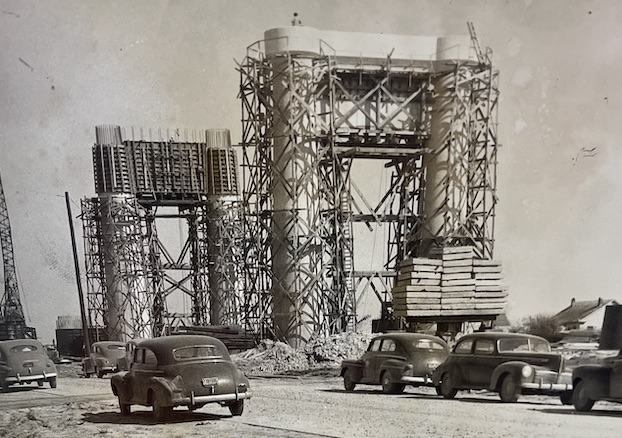Cavanaugh: ‘potentially only days’ before some get COVID vaccine
Published 10:30 pm Monday, December 7, 2020
Marlisa Harding
With the COVID-19 vaccine approval decision in the hands of the Food and Drug Administration next week, Dr. Lacey Cavanaugh, Louisiana Office of Public Health, regional medical director for region five, said it could be “potentially only days” before some Louisiana residents receive their first dosages. The vaccine has yet to arrive in the state, to her knowledge, but there are already plans in place for distribution.
“We’ve known for years that a pandemic is a threat. So luckily, the systems for distribution of a vaccine in large scale, the plans, they already exist. We’re not starting scratch,” she said. The ultra-cold considerations for some COVID-19 vaccines and requirement of a second dose require some tweaks to the plan, “but the base plans are already laid out,” she said.
Trending
The plan’s roll out hinges primarily on how many vaccines are available and what the public demand is. “We expect that probably at the beginning there will be a low supply of vaccine, so not a lot of them produced yet, and we expect there to be a high demand.”
The supply-and-demand dynamics require an initial prioritization as to who receives the first doses. Cavanaugh said the national committee that provides vaccine guidance has indicated that healthcare workers and those in long-term care facilities be vaccinated first.
“Not just all healthcare workers, but healthcare workers who are in direct contact with either COVID or COVID infectious materials,” she said.
These workers may include people who work in emergency rooms, COVID wards, hospital housekeeping and likely those who work with nursing home patients. There is a two-fold reason these individuals have been selected for the first round of immunization, Cavanaugh said.
“One is that it gives them a layer of protection but two, is that it also helps with hospital capacity. If our healthcare workers are sick, they’re unable to take care of all the other people who are sick with COVID.”
Following tier one distribution for healthcare workers, additional tiers will be added to the COVID-19 vaccine recommendations. While the details of additional tiers are still being worked out, Cavanaugh said people over 65 and those with co-morbidities will likely be in the next tier or recommendation.
Trending
“It’ll slowly open up to priority groups over time…But I think it’s hard to know whose in group two until we know how much vaccine is coming in group two. You’ve kind of got to wait and see what the supply is and what the demand is.”
Projections indicate that the vaccine may be widely available by mid 2021, she said. “We’re hoping you’ll be be able to receive the COVID vaccine at some point the way you would other vaccines. You can either go to your doctor’s office or potentially go to a pharmacy or any of the normal settings, a public health unit eventually. At some point it’ll be out there and widely available but projections indicate that likely won’t happen until late Spring or Summer.”
Many things regarding the vaccine remain tentative, she said, “because there’s still a lot of unknowns.” However, concerning the safety of the vaccine, “I do not see anything concerning in the data.”
Phase three trials were “very robust,” she said, with many individuals enrolled in the tests. “I feel very confident that the numbers of folks that they tested were in line with what we would often do for other types of pharmaceutical products,” she said.
“So although the process happened fast, I think that’s just a benefit to help our science.”
The remaining medical question surrounding the vaccine revolve around the drug’s long-term efficacy and administration. “We don’t know if you’re going to have to get another vaccine two years from now or if it’s going to be sort of this two dose series and then you’re done.”
Safeguards are also in place to track immediate and long-term side effects from the drug through the Vaccine Adverse Reporting system. “We keep a very close eye on any potential issues with the vaccines that are deployed out in the community setting. So there are safety mechanism in place that will apply for this vaccine as they do for all vaccines.”
While the COVID-19 vaccine is yet to be federally approved and distributed, Cavanaugh urged citizens to take advantage of other preventative healthcare measures like the flu vaccine to help the community’s hospital capacities which are already feeling “a lot of pressure from COVID.” “They (hospitals) are definitely already at a point that it has been incredibly busy for them and we have very few ICU beds available across the region,” she said. “I think that the more hospitalizations that we could prevent, the things that we do have a vaccine for already like the flu, if we can prevent some of those hospitalizations it will help to ease the burden on our hospital and leave extra space to be able to take care of COVID patients.”
Associated Press





